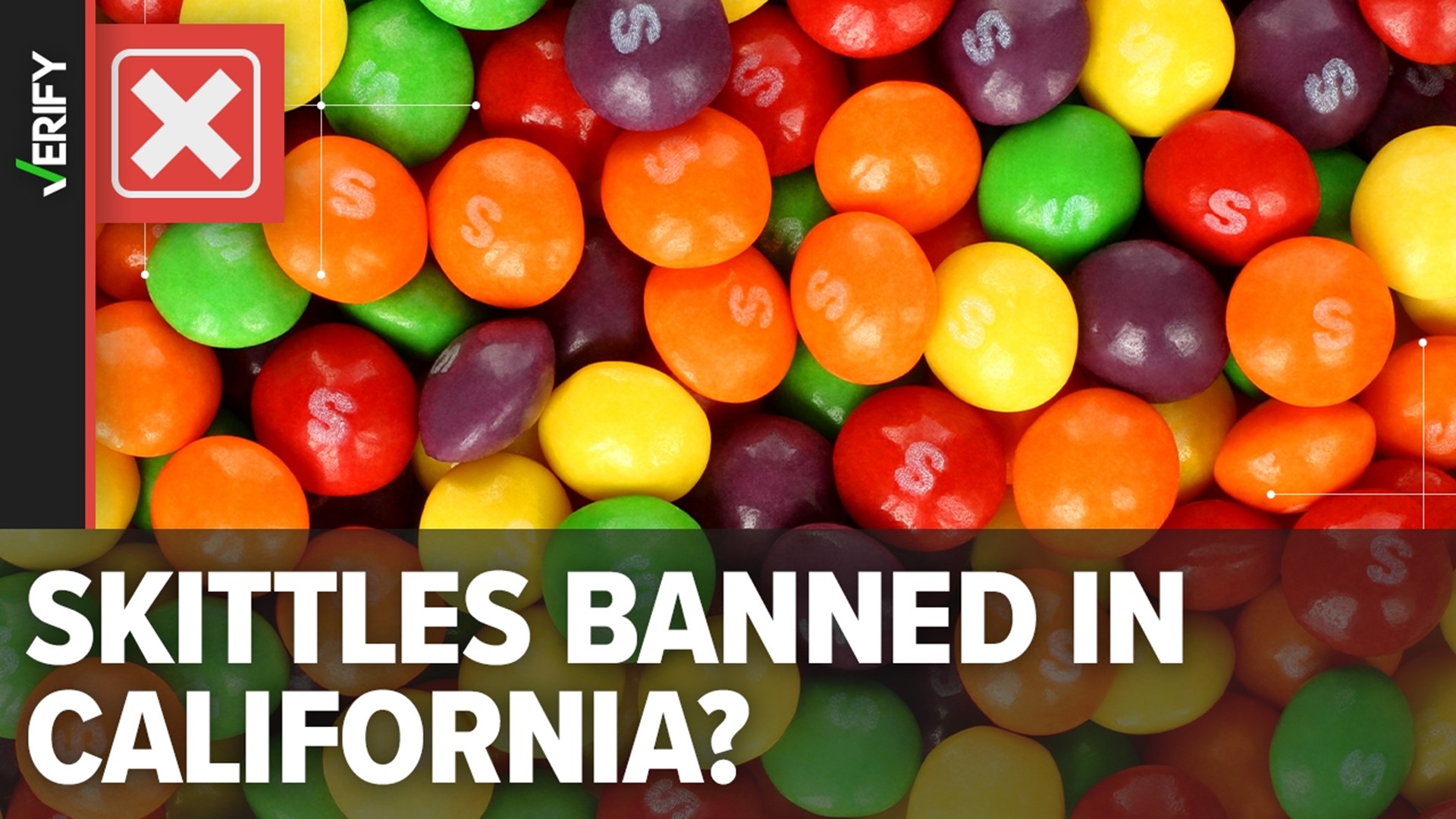On Oct. 7, California Gov. Gavin Newsom signed a law that’s been referred to online as the state’s “Skittles ban.”
The California Food Safety Act will ban the use of common food additives such as red dye No. 3.
Several viral posts on X, including this one from actor and TV host Mario Lopez, claim California is banning Skittles because the candies contain at least one of the banned additives.
THE QUESTION
Is California banning Skittles?
THE SOURCES
- The California Food Safety Act
- California Gov. Gavin Newsom
- California Assemblymember Jesse Gabriel (D-Encino)
- Ingredients lists for Skittles candies
THE ANSWER
No, California is not banning Skittles.
WHAT WE FOUND
Many people have referred to the California Food Safety Act as a “Skittles ban” because the legislation, when it was first proposed, banned the use of titanium dioxide in food products. The chemical is used in Skittles and other foods to enhance their color and sheen.
But the newly signed law no longer bans titanium dioxide. It only lists four food additives: red dye No. 3, brominated vegetable oil, potassium bromate and propylparaben.
The law prohibits any person or entity from manufacturing or selling a food product that contains any of these four chemicals beginning in 2027.
“Skittles sold in America do not contain any of the four ingredients” listed in the California Food Safety Act, a spokesperson for Gov. Gavin Newsom said.
VERIFY also searched the ingredients lists for all varieties of Skittles candy listed online and did not find any of the four food additives that will be banned in California.
Skittles’ manufacturer Mars did not respond to a request for comment.
California Assemblymember Jesse Gabriel (D-Encino), who authored the law, said in a press release that it does not outright ban any products, either.
“It would instead require companies to make modifications to products sold in California and likely prompt a nationwide transition to safer alternatives,” he said.
In a signing statement, Newsom also said delaying the bill’s implementation until 2027 gives brands “significant time…to revise their recipes to avoid these harmful chemicals.”
“Californians will still be able to access and enjoy their favorite food products, with greater confidence in the safety of such products,” Newsom said.
Pez candy and some varieties of Peeps marshmallows would need to reformulate their products under the law, since they contain red dye No. 3.
Some sodas, including Mountain Dew, contain brominated vegetable oil. The food additive is used to keep citrus flavor from separating in beverages.
Potassium bromate is used as an oxidizing agent in various types of bread and baked goods, while propylparaben is commonly used in small amounts as a preservative in food and beverages.
The National Confectioners Association (NCA), a trade organization for candy makers, has voiced its opposition to the California Food Safety Act.
"This law replaces a uniform national food safety system with a patchwork of inconsistent state requirements created by legislative fiat that will increase food costs," the NCA said in a statement. "This is a slippery slope that the FDA could prevent by engaging on this important topic. We should be relying on the scientific rigor of the FDA in terms of evaluating the safety of food ingredients and additives.”
This story is also available in Spanish / Lee este artículo también en español: No, California no prohibirá los Skittles

